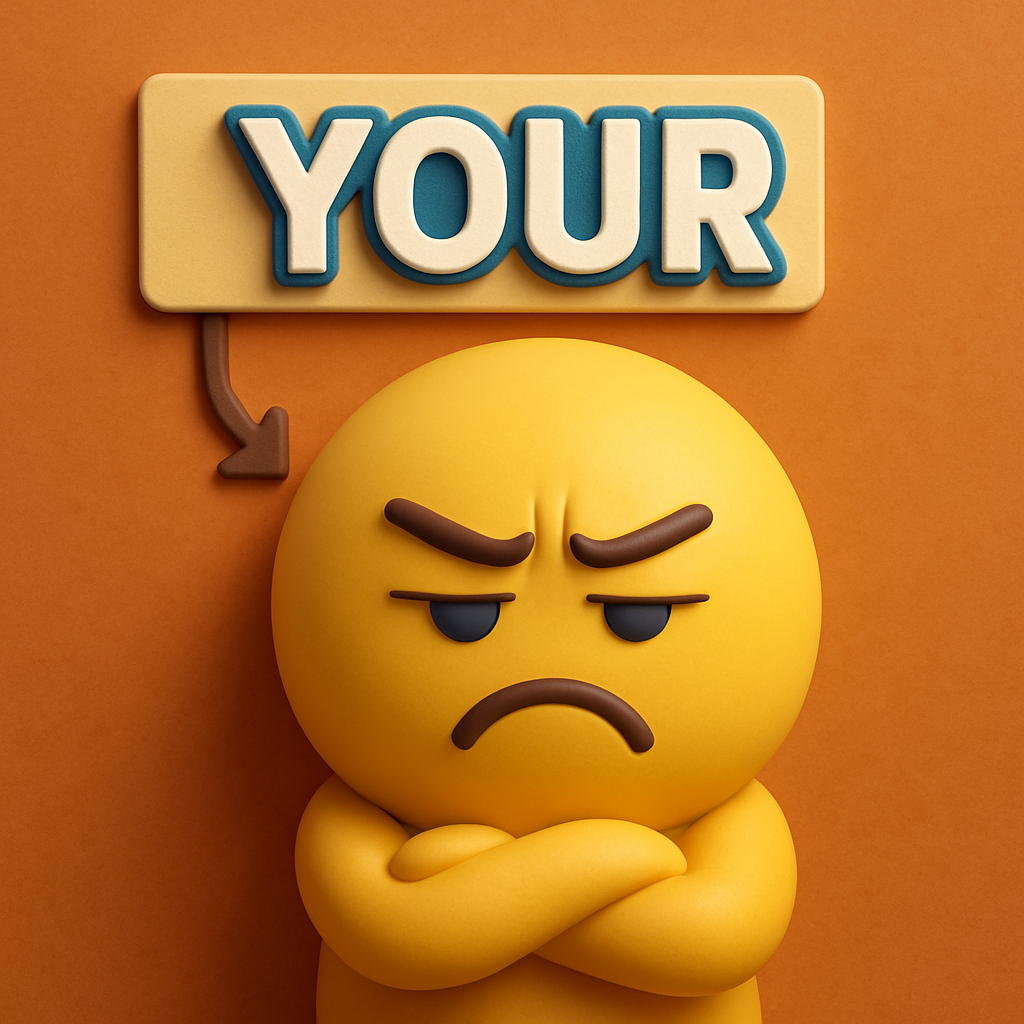Your
Definition
Your is a possessive determiner used to indicate that something belongs to or is associated with the person or people being addressed.
Parts of Speech
- Determiner
Pronunciation
American English
- IPA Pronunciation: /jʊr/, /jər/, or /jɔːr/
- Respelling: yoor, yer, or yawr
British English
- IPA Pronunciation: /jɔː/, /jʊə/, or /jə/
- Respelling: yaw, yoo, or yuh
Etymology
The word "your" originates from Old English "ēower," which is the genitive form of "gē" (you). It evolved in Middle English to "oure" and then to "your," reflecting possessive association with the second person plural and singular.
Derivatives
- Yourself (reflexive pronoun)
- Yours (possessive pronoun)
- Yourselfs (non-standard plural reflexive)
- You're (contraction of you are)
- Yourselves (plural reflexive pronoun)
Synonyms
- Thy (archaic)
- Thine (archaic)
- None
Antonyms
- My
- Our
- None
Usage
The determiner "your" is used to indicate possession or association with the addressee. For example, "Your car is parked outside."
It is also used to establish relationships or roles, as in "Your teacher will explain the assignment."
Related Terms
- You: The pronoun representing the person being addressed.
- Yours: The possessive pronoun indicating something belongs to the person being addressed.
- You're: A contraction of "you are."
Detailed Definitions
Determiner
- Belonging to or associated with the person or people being addressed: Used to show possession or relationship.
- Example: "Is this your bag?"
- Used to refer to qualities or characteristics: Refers to something attributed to the addressee.
- Example: "Your attitude needs to improve."
- In informal or rhetorical contexts: Indicates general ownership or relation.
- Example: "You should read your classic novels."
your



🇨🇳 Mandarin Chinese
- 你的 (your - informal, singular)
- IPA: /ni˨˩˦ de/
- English Respell: nǐ de
- 您的 (your - formal)
- IPA: /nin˧˥ de/
- English Respell: nín de
🇮🇳 Hindi
- तेरा/तेरी/तेरे (your - informal, singular, changes according to the gender and number of the noun)
- IPA: /t̪eː.ɾa/, /t̪eː.ɾiː/, /t̪eː.ɾeː/
- English Respell: tera, teri, tere
- आपका/आपकी/आपके (your - formal or plural)
- IPA: /aːp.kaː/, /aːp.kiː/, /aːp.keː/
- English Respell: aapka, aapki, aapke
🇪🇸 Spanish
- Tu (your - informal, singular)
- IPA: /tu/
- English Respell: tu
- Su (your - formal, singular)
- IPA: /su/
- English Respell: su
🇫🇷 French
- Ton (your - masculine, singular)
- IPA: /tɔ̃/
- English Respell: ton
- Votre (your - formal or plural)
- IPA: /vɔtʁ/
- English Respell: votre
🇦🇪 Arabic (Modern Standard)
- لك (your - masculine, singular)
- IPA: /laka/
- English Respell: laka
- لكِ (your - feminine, singular)
- IPA: /laki/
- English Respell: laki
🇧🇩 Bengali
- তোমার (your - informal)
- IPA: /t̪ɔmar/
- English Respell: tomar
- আপনার (your - formal)
- IPA: /aponar/
- English Respell: aponar
🇷🇺 Russian
- твой (your - informal, singular)
- IPA: /tvɔj/
- English Respell: tvoi
- ваш (your - formal or plural)
- IPA: /vaʂ/
- English Respell: vash
🇵🇹 Portuguese
- Teu (your - informal, singular)
- IPA: /tew/
- English Respell: teu
- Seu (your - formal, singular)
- IPA: /sew/
- English Respell: seu
🇮🇩 Indonesian
- Kamu (your - informal, singular)
- IPA: /ka.mu/
- English Respell: kamu
- Anda (your - formal, singular)
- IPA: /an.da/
- English Respell: anda
🇩🇪 German
- Dein (your - informal, singular)
- IPA: /daɪn/
- English Respell: dein
- Ihr (your - formal or plural)
- IPA: /iːɐ̯/
- English Respell: ihr
🇯🇵 Japanese
- 君の (your - informal, singular)
- IPA: /kimi no/
- English Respell: kimi no
- あなたの (your - formal, singular)
- IPA: /anata no/
- English Respell: anata no
🇻🇳 Vietnamese
- Của em (your - younger or same age)
- IPA: /kɨə ɛm˧˧/
- English Respell: của em
- Của anh / Của chị (your - older, male / female)
- IPA: /kɨə ʔaːjŋ˧˧/, /kɨə cǐ˧˧/
- English Respell: của anh / của chị
🇰🇷 Korean
- 너의 (your - informal, singular)
- IPA: /nʌ.ui/
- English Respell: neoui
- 당신의 (your - formal, singular)
- IPA: /daŋ.ɕin.ui/
- English Respell: dangsin-ui
🇹🇷 Turkish
- Senin (your - informal, singular)
- IPA: /se.nin/
- English Respell: senin
- Sizin (your - formal or plural)
- IPA: /si.zin/
- English Respell: sizin
🇵🇰 Urdu
- تیرا/تیری/تیرے (your - informal, singular)
- IPA: /t̪iː.ɾa/, /t̪iː.ɾi/, /t̪iː.ɾe/
- English Respell: tera/teri/tere
- آپکا/آپکی/آپکے (your - formal or plural)
- IPA: /aːp.kaː/, /aːp.kiː/, /aːp.ke/
- English Respell: aapka/aapki/aapke





